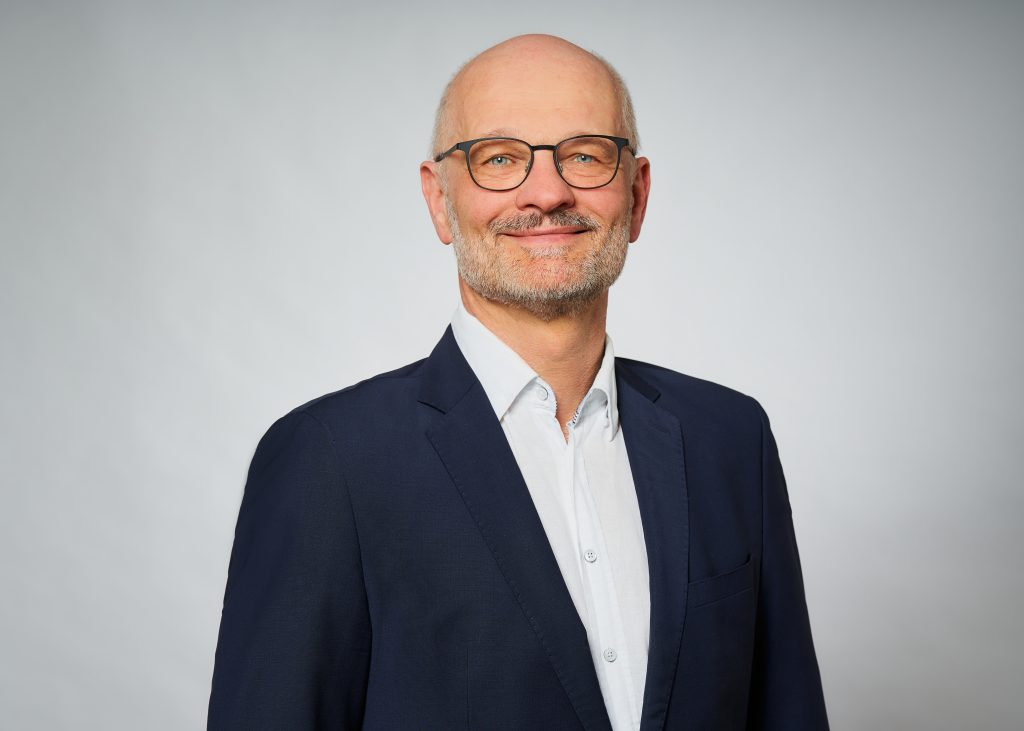Born in 1960; undergraduate studies in History in Munich and Leicester (England); PhD in 1991 and Habilitation in 1999 (Munich), 2000–2002: Professor of Modern History in Munich; 2002–2006: Professor of History at the International University Bremen and first incumbent of the Helmut Schmidt Chair for International History; 2006–2011: Professor of Modern and Contemporary History in Mannheim, visiting professorship among others at London School of Economics, St Antony’s College Oxford, Université de Montréal and the Sorbonne Université et Panthéon Sorbonne.
Since 2011 Johannes Paulmann has been Director at the Leibniz Institute of European History (IEG) in Mainz. He is spokesperson for the NFDI4Memory consortium for historically working sciences as part of the development of a National Research Data Infrastructure. As PI he is involved in the Collaborative Research Centre 1482 “Studies in Human Categorisation” at the JGU and the IEG.
- Spokesperson of the DFG Review Board Historical Sciences
- Chairman of the Advisory Board of the DHI Moscow
- Chairman of the Advisory Board of the Centre Marc Bloch, Berlin
- Advisory Board of the Leibniz Institute for Jewish History and Culture — Simon Dubnow
- European history
- Transnational and international history
- German history in a transnational perspective
-
Editor (together with Markus Friedrich and Nick Stargardt) of the Jahrbuch für Europäische Geschichte / European History Yearbook (De Gruyter Oldenbourg).
-
Joint editor of the Studien zur Internationalen Geschichte (De Gruyter Oldenbourg).
-
Chief editor (with Nicole Reinhardt) of the Veröffentlichungen des Instituts für Europäische Geschichte (VIEG),(Vandenhoeck & Ruprecht)
-
Chief editor (with Nicole Reinhardt) of European History Online (EGO).
- Paulmann, J. / Dizdar, D. / Hirschauer, S. / Schabacher, G. 2021 (Hg.): Humandifferenzierung. Disziplinäre Perspektiven und empirische Sondierungen. Weilerswist: Velbrück Wissenschaft.
- Paulmann, J./ Möller, E./ Stornig, K. 2020 (Hg.): Gendering Global Humanitarianism in the Twentieth Century. Practice, Politics and the Power or Representation. New York: Palgrave Macmillan.
- Paulmann, J. 2019: Globale Vorherrschaft und Fortschrittsglaube. Europa 1850 – 1914. München: Beck (arab. Übers. 2022 im Kalima Verlag, Abu Dhabi).
- Paulmann, J. 2019 (Hg.): Humanitarianism & Media. 1900 to the Present, New York: Berghahn Books.
- Paulmann, J./ Feindt, G. /Gißibl, B. 2017 (Hg.): Kulturelle Souveränität. Politische Deutungs- und Handlungsmacht jenseits des Staates im 20. Jahrhundert. Göttingen: Vandenhoeck & Ruprecht.
- Paulmann, J./ Schnettger, M. /Weller, T. 2016 (Hg.): Unversöhnte Verschiedenheit: Verfahren zur Bewältigung religiös-konfessioneller Differenz in der europäischen Neuzeit. Göttingen: Vandenhoeck & Ruprecht.
- Paulmann, J. 2016 (Hg.): Dilemmas of Humanitarian Aid in the Twentieth Century. Oxford: Oxford University Press.
- Paulmann, J. 2013: Conjunctures in the history of international humanitarian aid during the twentieth century, Humanity: An International Journal of Human Rights, Humanitarianism, and Development 4/2, S. 215-238.
- Paulmann, J. 2013: Regionen und Welten: Arenen und Akteure regionaler Weltbeziehungen seit dem19. Jahrhundert. In: Historische Zeitschrift 296: 660-699.
